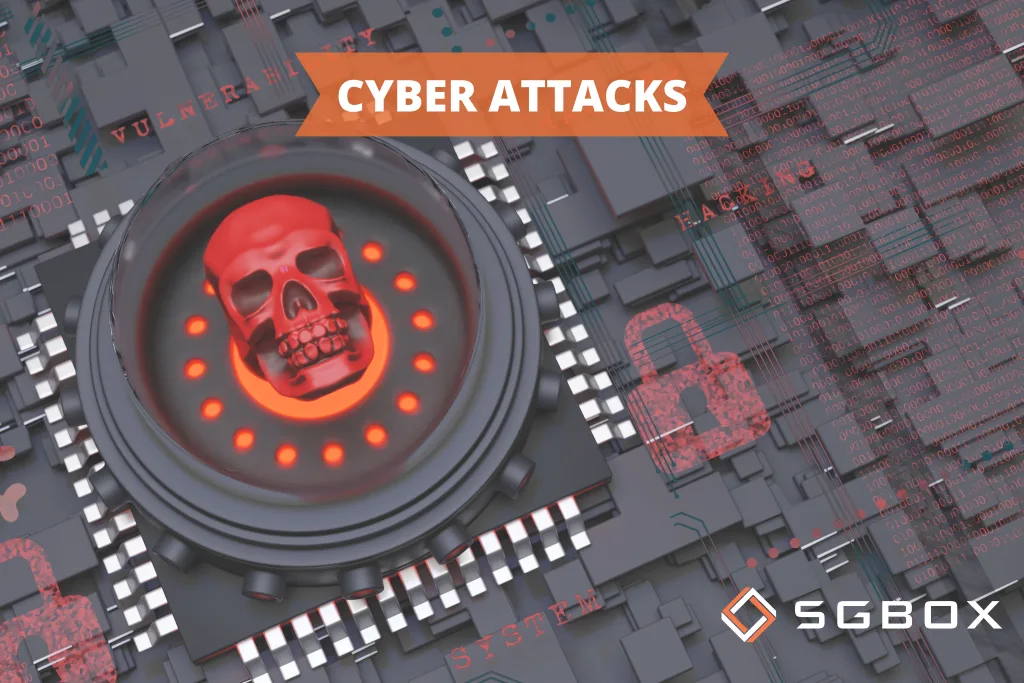Cyber Attacks: common types and how to protect your company

Today, cyber attacks are proliferating exponentially due to the increased number and variety of malicious software. This is a consequence of the growing number of devices connected to the internet.
The latest CLUSIT Report showed that Italy is increasingly in the crosshairs of cybercriminals. If last year attacks increased by 11% globally, in our country this figure is 65%.
Regardless of size, companies and organizations must face the risk of cybersecurity breaches.
In this article, we will explore what a cyber attack is, the most common types, and provide advice on how to protect yourself.
What is a Cyber Attack?
A cyber attack is an attempt to compromise the security of an IT infrastructure to gain unauthorized access or damage data.
These attacks can range from common threats to sophisticated hacking attempts.
The main goal is to exploit vulnerabilities in the system to obtain sensitive information or cause harm.
Common types of attacks
There are various types of cyber attacks, each with a unique approach. Understanding these threats is crucial for adopting adequate protective measures.
- Malware
Malware is the most common cyber attack, involving malicious software designed to damage or gain unauthorized access to company computer systems, PCs, tablets, and IoT devices.
- Phishing
Phishing involves sending deceptive emails to obtain personal information such as passwords or financial data. Being aware of suspicious emails and avoiding clicking on unverified links can significantly reduce the risk of falling into this trap.
- DDoS Attacks (Denial of Service)
Distributed Denial of Service (DDoS) attacks aim to overload a website or online service, making it inaccessible. Using DDoS protection solutions can help mitigate this type of threat.
- Man in the Middle (MitM)
The Man-in-the-Middle attack allows hackers to intercept and manipulate a user’s internet traffic by placing themselves “in the middle” between the client and the server.
This enables the attacker to intercept messages sent and received by the user.
- SQL Injection
SQL Injection involves inserting and executing unexpected SQL code within web applications.
This opens the possibility of attacking a large number of web applications, regardless of the programming language used.
- Zero-Day Attacks
A Zero-Day attack refers to a vulnerability in IT infrastructure discovered by attackers before the network owner can address it.
This minimizes the reaction time to the attack, increasing the likelihood of success.
Risks for SMEs
Small and Medium Enterprises (SMEs) are often targeted by cyber attacks due to potentially limited resources for advanced security measures.
However, neglecting cybersecurity could have severe consequences. SMEs should consider implementing company-wide security strategies, involving staff in security training programs, and potentially investing in security platforms or outsourcing security activities to an external Partner (MSSP).
Defending against Cyber Attacks
Protecting against cyber attacks requires a combination of awareness, advanced technologies, and strong security practices. Here are some fundamental guidelines:
- Employee Training: educating staff on cybersecurity is crucial. They need to recognize and report suspicious behaviors, contributing to the prevention of potential attacks.
- Regular Updates: keeping all software and operating systems up to date is essential to fix vulnerabilities and reduce the risk of attacks.
- Firewall and Antivirus Protection: using robust firewalls and updated antivirus software can block many common cyber attacks, providing an additional layer of defense.
- SIEM & SOAR Platform: adopting a cybersecurity platform to manage and monitor defense activities against potential threats.
Cyber attacks pose a constant threat in today’s digital world. To protect companies and organizations, it is essential to understand the most common types of attacks and implement appropriate security measures.
Investing in cybersecurity not only safeguards sensitive data but also preserves the reputation and trust of customers.
Awareness and proactive action are key to effectively defend against this growing digital threat. Learn how to defend yourself with SGBox.




